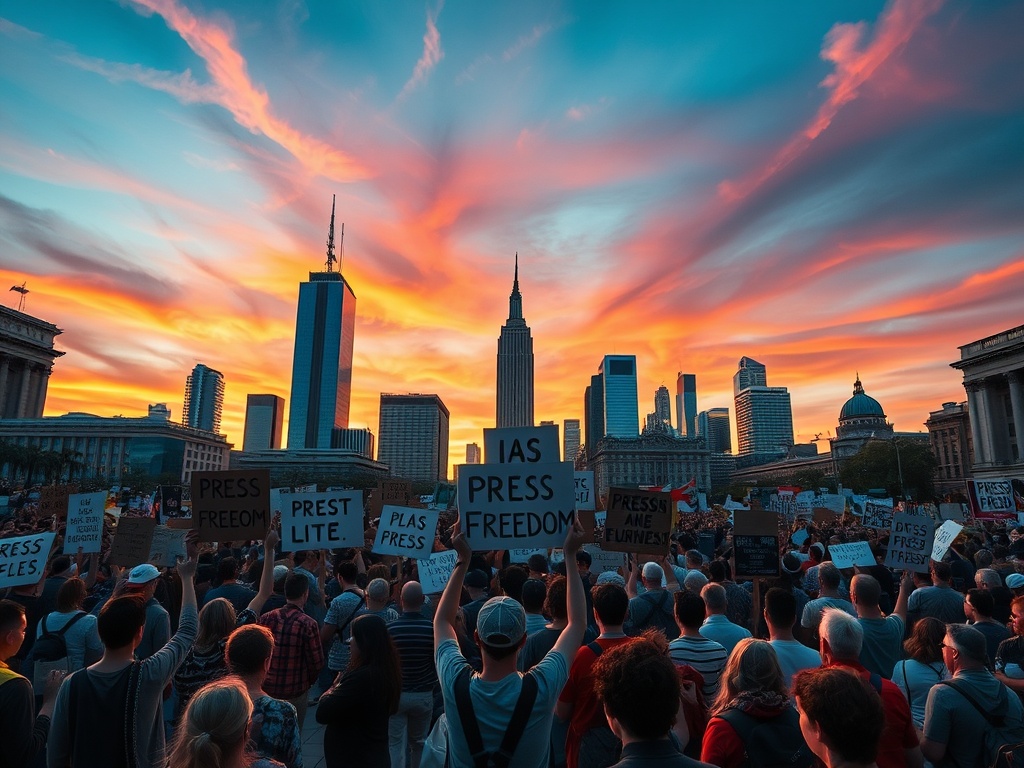The Battle Over the Gulf of America: A Clash of Power and Press Freedom

Amid the whirlwind of executive decisions and policy changes that have defined Donald Trump’s return to the White House, one particular detail from his inauguration day has raised eyebrows. On that pivotal day in January, he signed Executive Order 14172, titled Restoring Names That Honour American Greatness. While the order does not propose whimsical name changes like renaming Snickers back to Marathon bars or reverting Meta to Facebook, it does seek to redefine geographical nomenclature by renaming the Gulf of Mexico as the Gulf of America.
You might wonder why this matters. Wrapped in grandiloquent Trumpian rhetoric—”As my Administration restores American pride in the history of American greatness,” he proclaimed—it could easily be dismissed as mere posturing, irrelevant to the daily lives of most Americans. However, this initiative has ignited a significant conflict between the government and the press, morphing into a legal battle that touches on the very essence of the First Amendment of the American Constitution, which safeguards the freedom of speech for all citizens.
The Associated Press (AP), a global news organization committed to factual reporting, has taken a bold stand by suing three members of the Trump administration. The lawsuit stems from the administration’s decision to exclude AP reporters from White House press briefings and to revoke their access to Air Force One. This move should raise alarms for anyone who values the crucial roles of both government and the press in a democratic society.
In its legal petition, AP’s lawyers asserted, “The press and all people in the United States have the right to choose their own words and not be retaliated against by the government. The Constitution does not allow the government to control speech. Allowing such government control and retaliation to stand is a threat to every American’s freedom.”
It’s worth noting that the AP was established in 1846 as a collaborative effort among news organizations seeking to pool resources for reporting on events beyond their localities. Its inaugural assignment was the coverage of the Mexican-American War, a strikingly relevant historical parallel given the current tensions. Today, AP operates 235 bureaus worldwide and has garnered 59 Pulitzer Prizes, solidifying its status as a significant player in global journalism. Thus, any legal confrontation with the President warrants serious consideration, especially given that this appears to be a fight Trump is eager to pursue.
When the executive order was issued, the AP responded thoughtfully by updating their style guide—the reference manual for journalists around the globe. They stated, “The Gulf of Mexico has carried that name for more than 400 years. The Associated Press will refer to it by its original name while acknowledging the new name Trump has chosen.” This response strikes a balance between acknowledging the President’s decree and adhering to historical accuracy.
However, the President’s reaction—denying AP journalists basic access to press briefings—was anything but measured. This overreach of authority suggests that the President sees this conflict as beneficial to his agenda, reinforcing his ongoing campaign against mainstream media. More critically, it undermines independent oversight, a cornerstone of a functioning democracy.
Interestingly, some of Trump’s media supporters, including even Fox News, have rallied behind AP, highlighting the gravity of the threat to free speech. Should the President go unchallenged in this matter, we risk stepping further into a post-truth era, where leaders manipulate perceptions to suit their narratives.
While one may view this legal dispute as a minor skirmish within the broader political landscape, the stakes are undeniably high. It is not merely a question of semantics but rather a fight for an invaluable principle that underpins our democracy.




